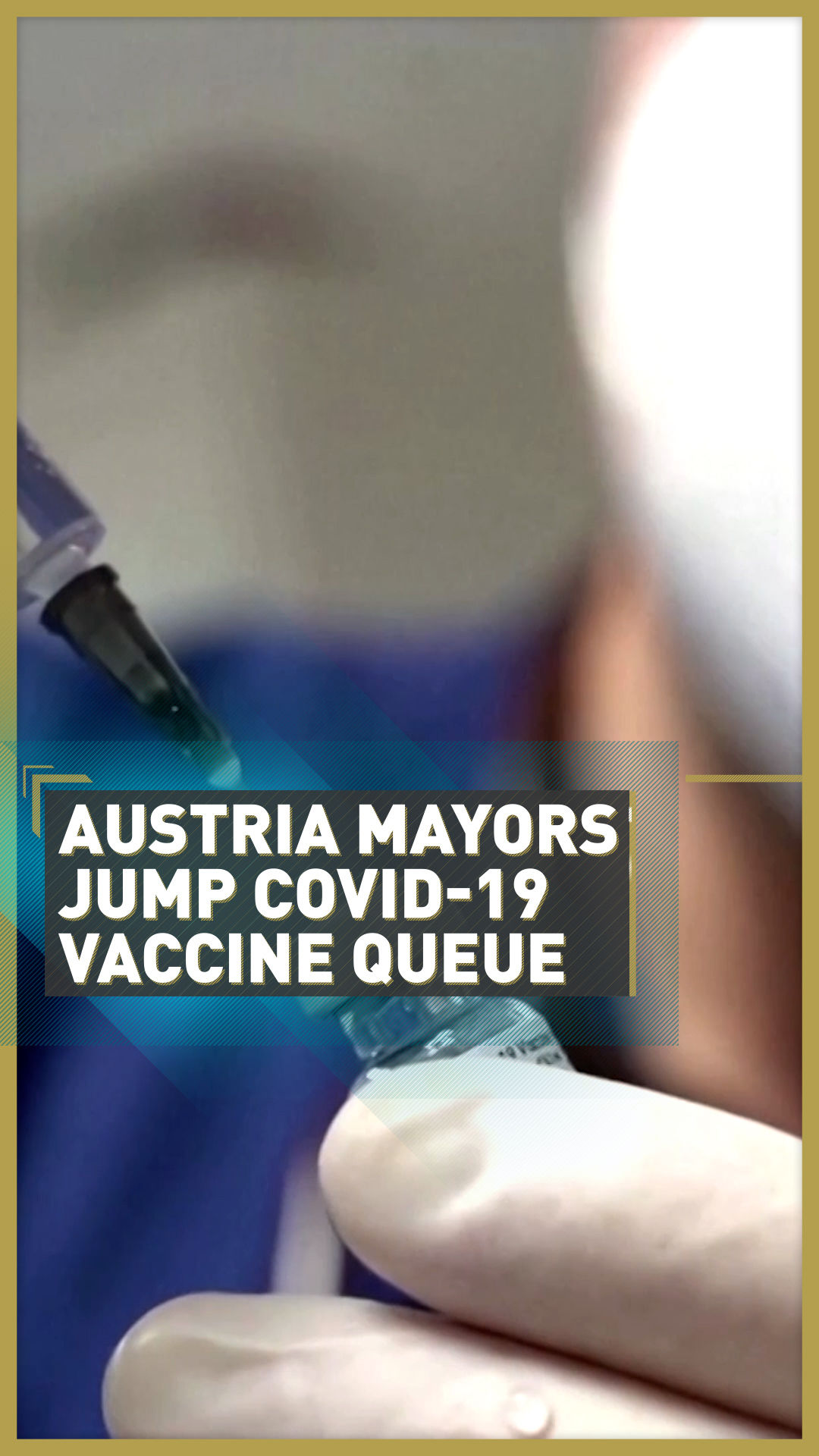02:00

The question of who should have priority for COVID-19 vaccinations and particularly what should happen with "leftover" doses has provoked sharp debate in Austria, after several local politicians were accused of jumping the queue by securing their injections ahead of more vulnerable members of the population.
The issue has been raised across Europe, but a series of recent high-profile cases have prompted public outrage in Austria and forced authorities there to rethink their approach.
"Of course it's morally condemnable," a Viennese woman told CGTN Europe, while shopping groceries at Vienna's Naschmarkt market. Another woman agreed: "It's definitely not right that these mayors have jumped the queue."
READ MORE
The EU vs AstraZeneca, explained
The art of COVID-19 communication
Call for global biodiversity agreement
Anti-corruption prosecutors in two federal Austrian states have even opened investigations into allegations that payments were made in a bid to influence who would get access to the vaccinations.
One of the most highly publicized cases involves Wolfgang Matt, mayor of the small city of Feldkirch, who a doctor claims was vaccinated ahead of elderly people at a nursing home. Matt has apologized. Others have defended their actions on the basis that unused vaccines could otherwise have expired and been thrown away.
Chancellor Sebastian Kurz has spoken out strongly against such behavior, although resignations demanded by the opposition have so far failed to occur.
Indeed, the governor of the state of Salzburg, Wilfried Haslauer, has backed his party's under-fire mayors, saying that many of them also carry out the function of nursing home managers and are therefore in direct contact with the elderly.
Fighting the queue-jumpers
Nevertheless, Austrian authorities now plan to fight vaccine queue jumpers. Birgit Fykatas-Guth, head of Vienna's crisis management team, has promised tighter oversight: "We go unannounced at short notice to the individual vaccination centers and look at how these pre-registration lists are handled," she explained.
From now on, these lists of elderly and vulnerable people eligible for the first round of vaccines will also apply to leftover supplies. Previously, surplus vaccines could be administered to anyone who was on hand to take them – giving local politicians a window of opportunity. "Now the priority here is to call only the very elderly," Fykatas-Guth added.

A health worker holds up a vial of Covishield, the Oxford-AstraZeneca COVID-19 vaccine. /Sai Aung Main/AFP
It remains to be seen whether these precautions will be enough to prevent a repeat of what happened at Vienna's Baumgarten nursing home, where several of those vaccinated did not belong to a COVID-19 risk group.
"Unfortunately, some [14] vaccine doses went to relatives who do not belong to the classic risk groups – aged and/or chronically ill," the home admitted to CGTN Europe. "We regret that very much."
But Austria is not alone. Corruption has become an issue for vaccine programs elsewhere in the European Union – including Spain and Italy. Spain's top military chief resigned after his illegitimate COVID-19 vaccination was revealed, while similar investigations are now under way in Italy.
Video editor: Nuro Mosenico
 简体中文
简体中文

